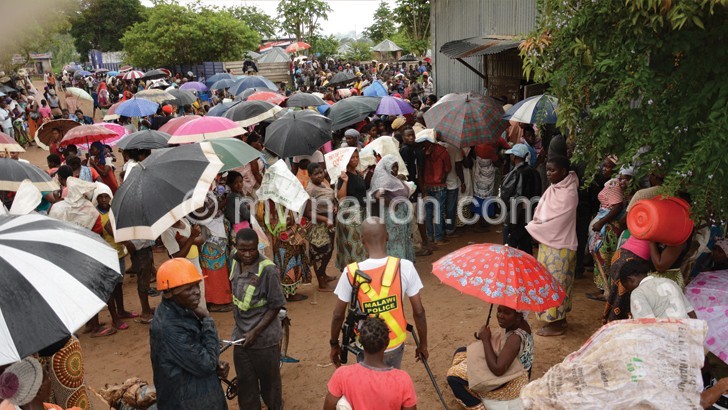Reform agriculture institutions—World Bank
The World Bank has urged government to reform agriculture marketing institutions such as Agricultural Development and Marketing Corporation (Admarc) to reduce the fiscal burden on the budget and the institutions.
The bank has also recommended a review of maize export bans before they are effected.
Making the presentation at the launch of two reports—the 7th Malawi Economic Monitor titled Realising Safety Nets Potential and Hard Hit by El Nino in Lilongwe yesterday, World Bank economist Priscilla Kondoole said bailouts like the K45 billion extended to Admarc have a negative impact on the economy.
She said. “There is need for much stronger controls on spending to maintain macro-economic stability. There is also need to reform agricultural market institutions to reduce the fiscal burden and distortions in maize markets. This reminds us of issues of Admarc bailout which can negatively affect budget implementation.”

In the Public Service Reforms Programme, Admarc set out to put in place reforms to regulate and improve the provision of the social services aspect by offsetting the difference in the average ruling market price of maize to the government as a subsidy where the prices set by government for crop purchases are higher.
This was meant to improve Admarc’s operations and provide it with a better financial standing and credit worthiness but most of the reforms have not been implemented as evidenced by the heavy borrowing which the institution incurred on instruction from the government to buy maize for the lean period.
On the export ban, Kondoole said these frustrate farmers and private sector players because they normally lead to low prices of agricultural products on the local market.
According to a study by the Food Policy Research Institute (Ifpri) Malawi lost about K69 billion in potential export revenue after government enforced a maize export ban during the 2016/17 harvesting season.
Parliamentary Committee on Agriculture chairperson Joseph Chidanti Malunga, in a separate interview, claimed that the Admarc bailout could have been avoided if the export ban had not been put in place.
He said: “We were angered by this decision because the money that they gave to Admarc could have been used for other equally important activities. Admarc could have made this money itself and I concur with the World Bank that we need to think carefully before we come up with some ‘bad’ policies and decisions.”
In his remarks, World Bank country manager Greg Toulmin said despite the country experiencing growth after two years of depressed economic activity, there is need to exercise caution in 2018 because the economic growth is expected to moderate due to an anticipated decline in agricultural production.
He said the past two years have seen the inflationary pressure remaining subdued aided by the sustained deceleration of the domestic price increases and a stable Malawi kwacha, following a tight monetary stance by the Reserve Bank of Malawi (RBM).
Toulmin said: “The economic monitor records that Malawi’s economy faces significant downside risks from structural constraints and policy induced shocks.”
He said the country continues to face significant risks, related to climatic shocks that have a negative impact on the achievement of macro-economic stability.
Department of Economic Planning and Development chief director Peter Simbani, agreed with Toulmin that there is need for caution because Malawi is prone to adverse weather shocks which put pressure on the budget and the economy as a whole.
He said: “I agree with the World Bank on the need for cautious optimism. Malawi has indeed been prone to adverse weather shocks which exert pressure as we have to respond to humanitarian needs of that moment and divert our attention from focusing on economic growth. Without careful planning, the recurrence of natural shocks perpetuate fiscal imbalance.”
Simbani said these fiscal slippages could have a significant macroeconomic cost, necessitating painful adjustments.
In granting Malawi a new economic programme, the Extended Credit Facility (ECF) in April this year, the International Monetary Fund (IMF) also raised the issue of Admarc reforms.
The IMF said it was important for Malawi Government to seriously look into Admarc reforms and evaluate ways of marketing its maize.
In August 2017, it emerged that Admarc was failing to roll out its reforms as it was choked with debts. The reforms, among others, recommended restructuring of Admarc and engagement of business masters. n





